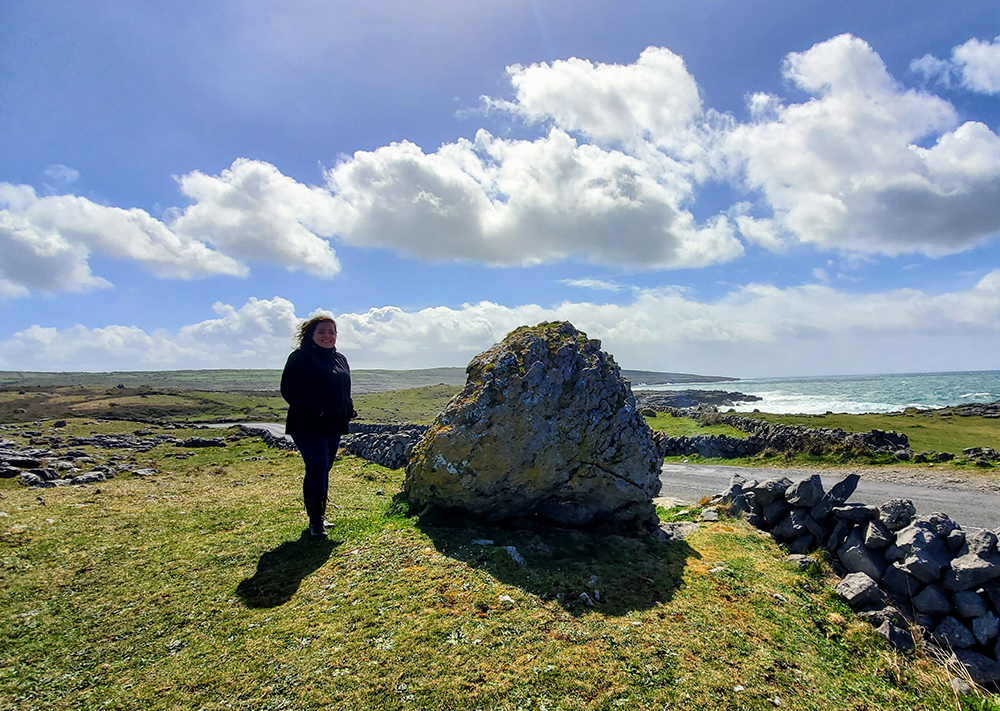In April, I traveled to Dublin, Ireland and celebrated my third time presenting at a European Mentoring and Coaching Council conference. EMCC exists to develop and promote mentoring, coaching and supervision at a global level, so don’t let the name mislead you. The conference is a global gathering of coaches and mentors looking to learn from one another. The theme for this year’s event was Reflect, Learn and Transform. My colleagues and I were thrilled to contribute to the speaker lineup by presenting some very timely empirical insights about Compassionate Leadership. In the end, we all had the opportunity to reflect and learn during the three-day meeting. I hope that this leads to some important transformations internally and externally for all attendees.
It is always exciting to present at a conference, but this year we had a partner who I was particularly excited to work with. MRG teamed up with Dr. Feena May, the Head of Global Learning and Development and a founder of the Humanitarian Leadership and Management School (HLMS) at the International Committee of the Red Cross (ICRC). MRG was represented by David Ringwood, our Vice President of Client Development in the EMEA region and yours truly, MRG’s Head of Research. This team was great to work with and our areas of expertise perfectly complemented one another, allowing us to take a more comprehensive approach to describing the development of compassionate leadership.

The conference was held in Dublin, Ireland. Both of my co-presenters are Irish but I, the tourist of the group, made sure to find time to see more of the country. I was able to schedule a day tour to the west coast, and got to see the Cliffs of Moher, the Burren, Galway, and even the Barack Obama Plaza. Of course, that day-trip just piqued my interest and now I need to go back and see more of Ireland.
Research is an integral part of MRG’s mission, and we make sure to present timely and novel research whenever we have a chance. We are fortunate to have data from participants all over the world who have taken the LEA 360TM, which allows us to shed light on an ever-expanding list of leadership topics. When we learned that the theme for EMCC’s coaching and mentoring conference was Reflect, Learn and Transform, we thought about the types of transformation that are essential in today’s world. We decided to talk about the development of compassionate leadership because it is so broadly applicable. We live in a complex world, where employees are expected to do more than ever before, yet also manage to find balance with their personal lives. This can cause a great deal of distress. However, leaders and managers can reduce this distress by behaving in ways that support their employees and colleagues through the tough times.
We researched the characteristics of compassionate leaders and used our practitioner lens to turn that research into practical insights about what leaders should be doing to support their employees. Our collaboration with the HLMS allowed us to share a real-world example of those findings in action, and to provide a tangible example that our audience could draw from to inform their own coaching practice. (I would love to share more about our findings, but I would prefer to share those with you at our next webinar – more info below, or register here.)
One of the best parts of attending a conference is learning about what everyone else has been working on. Within the packed schedule, three topics seemed to be generating the most buzz:
- There were a few talks about using technology to transform how we coach – using wearables to measure physiological responses, using big data to learn about what works, and discovering new competencies for the digital age.
- Not surprisingly, a few of the presentations centered on the idea of using personal challenges to grow. These speakers discussed controlling one’s emotions when receiving critical feedback, recognizing and eliminating limiting beliefs, and turning mistakes into drivers for change.
- Finally, there were quite a few talks about making a difference, social impact, and helping others, including very specific examples about coaching cancer patients and men coaching women in the #metoo era. Our talk about compassionate leadership was in good company in this category.
Now that I’m back in Portland, I’m looking forward to continuing the discussion about compassionate leadership.
I’ll be hosting a webinar on this topic on Tuesday, May 14. Please join me to get all the details about why this is such an important competence and how we can coach leaders to behave more compassionately by registering here.
